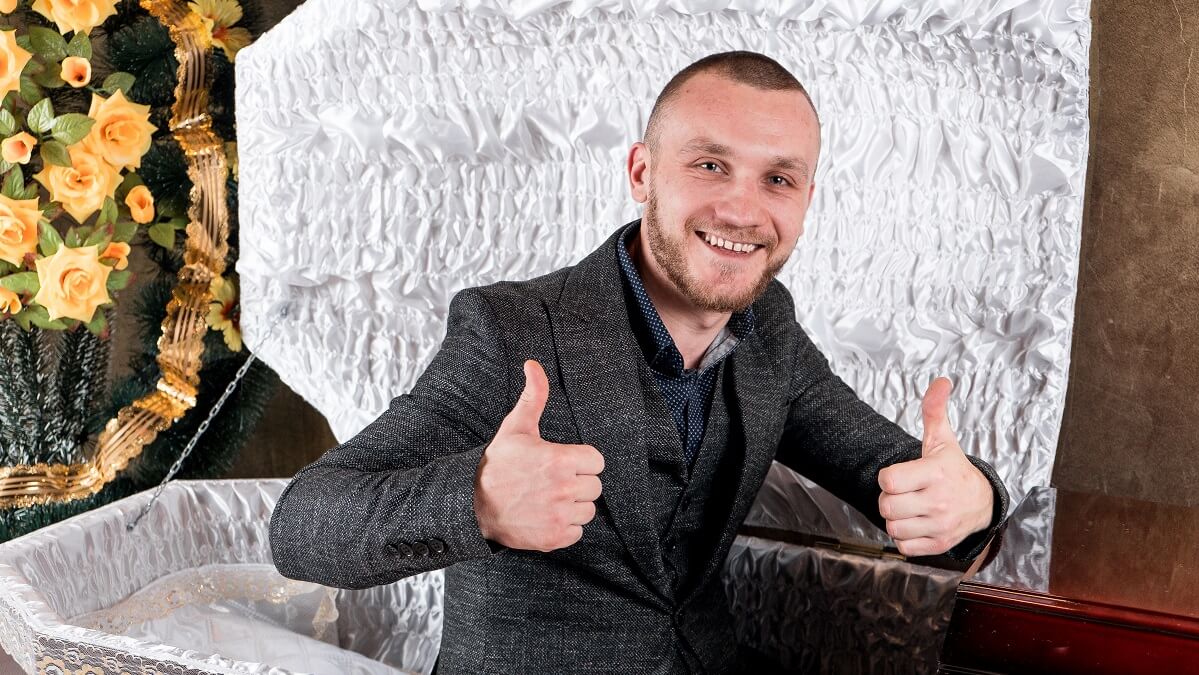If the recent news story of a 76-year-old woman who shocked her relatives by waking up in a coffin and knocking on it during her wake has sent shivers down your spine, you can officially relax and stop worrying.
In Australia, you really don’t have anything to fear when it comes to worrying about waking up in a coffin, dressed in your funeral finery. Although the woman in Ecuador, Bella Montoya, was, apparently, declared dead at a hospital, co-founder of The Last Hurrah Funerals in Melbourne, Kimba Griffith, says there are many logistical and legal verification steps that mean this is not something Australians should ever panic about.
As Ms Griffith explains, depending on the nature of the death and the person who died, there are a number of steps that happen before a funeral takes place.
If someone young and presumably healthy died suddenly and (initially) inexplicably, the body will head to the local Coroner’s Court for further investigation. And, if the death is declared suspicious, as the result of a suspected crime, police will also be involved.
If a person dies because of a known medical condition they had already been diagnosed with, there is obviously less suspicion but still key steps that must be adhered to for a person to be officially declared dead.
“We only take the body away if we have seen proof of Verification of Death form,” says Ms Griffith. “This has to be filled in by a medical professional and they have their own specific tests they conduct to verify that.”
Depending on when someone dies, even when no further investigation is needed, their body may not be collected by the funeral home for 24 or 48 hours, or sometimes longer.
“If someone dies on a Friday, we collect the body on the Monday,” says Ms Griffith.
Around the world, what typically happens to bodies that are brought to a funeral home, differs from culture to culture, with some religious beliefs requiring same-day burial or cremation, if possible.
“In America, they embalm them straight away,” Ms Griffith says.
In Australia, where planning funerals and allowing friends and family to arrive from different locations can sometimes create a gap of several days between time of death and the funeral or wake, Ms Griffith says bodies are then placed in a fridge that hovers around 4-5 degrees Celsius.
The storage process is another barrier to the worry of waking up in a coffin, she says.
Science explains why.
Severe hypothermia has a dramatic – and relatively fast – effect. According to a Scientific American article about how long a human can survive in cold water, the time is short.
“Generally, a person can survive in 41 degrees F (5 degrees C) water for 10, 15 or 20 minutes before the muscles get weak, you lose coordination and strength, which happens because the blood moves away from the extremities and toward the centre, or core, of the body,” the article says.
Have you ever worried about being declared dead when you’re actually still alive, and waking up in a coffin at your own funeral? What plans have you made for your own funeral service – or are you happy to leave it to the people you leave behind? Share your experiences in the comments below.
Read more: Farewelling the funeral

